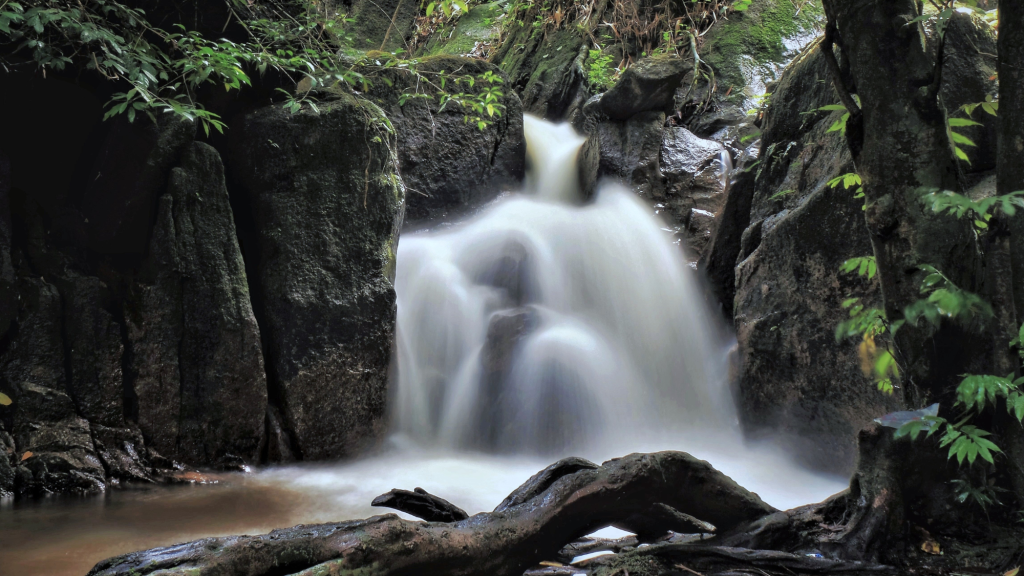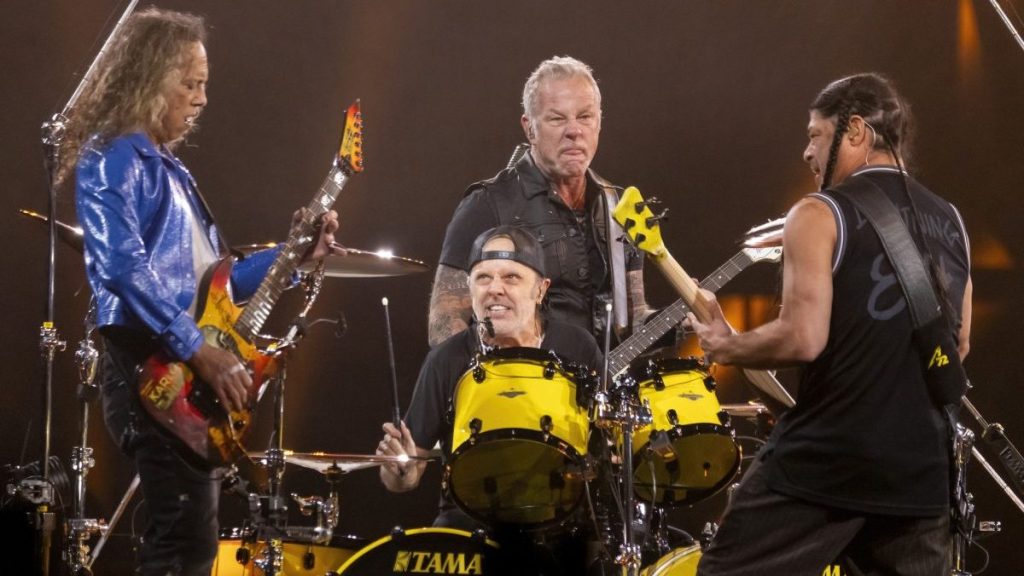Stirling, built around an imposing castle and sitting between the Lowlands and the Highlands, has always been a city of strategic importance. This was truer in the days of William Wallace and Robert the Bruce, but the old adage “he who holds Stirling, holds Scotland” has recently been bestowed a new significance: the city is now one of the tightest marginal seats in the UK, with incumbent Tory MP Stephen Kerr holding a majority of just 148 votes.
Stirling’s constituents have five times as much voting power than the average UK voter – so for the SNP, and its candidate Alyn Smith, winning back Stirling is one of the key targets of this election.
Videos by VICE
As in Scotland at large, the constituency now faces two different constitutional issues – Brexit and Scottish Independence – radically reshaping traditional party loyalties. Going by the results of the Independence and Brexit referendums, Stirling is both unusually Unionist and unusually pro-Remain, which makes this situation even more complicated: it means that both the SNP and the Conservatives could be said to have a mandate – but equally, neither do.
With Unionist former Labour voters jumping ship to the Conservatives and Remainer former Tories eyeing up the SNP (and relatively few people intending to vote Labour), the two biggest parties have everything to play for.

The sense that a victory for either side is within grasp has galvanised the city’s substantial student population. “There’s a lot of political engagement, particularly among the political societies,” says Jamie Macdairmid, chairman of the University of Stirling’s Students for Independence society, who I meet while tagging along on a canvassing session.
Despite the election happening during exam time, the SNP has seen a large number of students out canvassing. “We’ve seen more activists in this election than 2017 or 2015,” says Kathleen Szwebs, a Stirling local who studies at Strathclyde. “Because we’ve lost to a Tory, people are more mobilised to get out and help. They realise it’s do or die.”
During the time I spent in Stirling, the subject of Brexit was raised a lot; a number of people criticised Kerr for the hard-line approach he’s taken. “If you’re a member of a party you’re expected to follow the party line sometimes, but everything Kerr does is to the party line, no matter what. He’s taken a hard stance on Brexit, which is weird, given Stirling voted 68 percent to remain,” says Jamie. “He’s supposed to be Stirling’s representative in Westminster,” Kathleen agrees, “but for a lot of people it seems like he’s Westminster’s representative in Stirling.”

The Conservatives haven’t managed to mobilise student support to the same extent as the SNP (“they’ve certainly been a lot quieter on campus this year,” says Jamie) but then again, they don’t need to. Students aren’t a core Tory base anywhere, and even less so in a place like Stirling, which straddles the rural/urban divide. While in London, or any major city, you get extreme disparities of wealth within constituencies, the divide in Stirlingshire is spread wider. The city’s urban area contains some of the most deprived areas of Scotland, alongside streets of leafy affluence, home to university lecturers and Premier League footballers alike.
But a significant chunk of the constituency lies in the countryside, with its large population of land-owning farmers – perhaps the single most stereotypically Tory profession of all, other than being a banker or a political correspondent for the BBC.
“The Conservative party is more focused on rural areas and older people, mid-forties and above,” says Luke Davidson, chair of the Stirling University Conservative Society. “You’re always going to go for your core base in a town like Stirling, because so many students vote in their own constituencies at election time anyway. But you do definitely get a good amount of students coming out with the association.”
As well as Brexit, one issue raised by a number of students I spoke with was Kerr’s questionable record on LGBT rights – a topic he’s been grilled on during visits to campus. “I’m really invested in seeing him gone,” says Avar, a trans man currently studying at the university. “I can’t even vote in Stirling and I’ve been out campaigning for a party I’m not even a member of to try to get rid of him.”
Earlier this year, Kerr was accused of transphobia following the publication of an email to a constituent, in which which he wrote: “It is a current trend to ‘identify’ as something else, but as long as you are biologically one sex it does not matter what you identify.” Kerr’s office declined to comment on the response, telling University of Stirling student paper The Brig that it does “not comment on individual correspondence with constituents”. Kerr has also voiced his concerns about reforms to the Gender Recognition Act, a piece of legislation that many see as being imperative to the struggle for trans rights.
“He’s taken up this position because he has concerns over ‘women’s rights’ – something which has never bothered him before,” says Avar. In the interest of balance, it’s worth pointing out that the SNP have had their fair share of transphobic controversies recently, but the Party does remain committed to reforming the GRA.
While Kerr was a senior figure in the Church of the Latter Day Saints, a number of gay Mormon teenage men were outed to their parents – but Kerr has strenuously denied any involvement in this. He has also faced criticism for failing to sign or otherwise support a number of LGBT pledges in Scotland, including Time For Inclusive Education, an initiative that aims to tackle homophobic and transphobic bullying. This is a particularly pressing issue in Scotland, where 50 percent of LGBT young people and 63 percent of young trans people have experienced suicidal thoughts or behaviour.
Kerr also voted against legalising gay marriage in Northern Ireland (as well as abortion). When I emailed his office about this they argued the decision was made out of respect for Northern Ireland’s devolution – but many politicians abstained from the vote on a similar basis, which Kerr could also have done. “Stephen was at my wedding when I married my husband and is an advocate of LGBT rights,” said Neil Benny, a Tory councillor in Stirling who’s heavily involved with Kerr’s campaign. “He is in favour of equal marriage. As a gay man myself, I believe strongly that Stephen stands up for LGBT rights.”
The fact that Kerr’s contender, Alyn Smith, is a gay man who vocally supports trans rights lends this election a further layer of significance.


Unlike the SNP, Kerr’s office refused my request to accompany them canvassing, on the basis that “voters tend to consider these discussions private”. As a gay man from Stirling, I wanted to discuss the above issues with Kerr in person, so I decided to head to his office. I arrived just as he was returning from canvassing. When I introduced myself, he replied. “VICE? Never heard of it” and rushed past – fair enough!
The SNP isn’t the only party with a strong campus presence in Stirling – the Labour candidate, Mary Kate Ross, is a student of the university and has mustered a good deal of support (the city was a Labour seat from 1997 to 2015). But this is now a two-horse race, which poses a dilemma for left-leaning supporters of other parties: do you compromise and vote tactically in order to get rid of the Conservatives? Or do you go with your gut? In the case of Stirling, this shouldn’t be too difficult a decision. The tangible prospect of voting out a Tory MP outweighs the largely symbolic value of increasing the national vote share.
The reluctance of Labour supporters to vote Lib Dem is completely understandable, given the party’s terrible policies, the likelihood of them forming a coalition with the Conservatives and their history of doing exactly that. But the SNP are categorically not going to enter into government with Boris Johnson and, for all the party’s flaws, it shares many progressive values and policy ambitions with Labour.
“The choice before Stirling residents is clear: the arithmetic of a first-past-the-post election means that it is only the SNP who can beat Boris Johnson’s Tory candidate in Stirling,” says Lee Robb, the constituency organiser. “Our message to voters is to put party politics aside: let’s help stop Boris Johnson by electing an SNP MP.”
Stirling is my hometown and I support Labour, but if I still lived there I would vote SNP without feeling conflicted about doing so. There’s a clear moral imperative to prevent a Conservative majority and, if you live in Stirling, I’d urge you not to waste your extra voting power.
@fudwedding / fraochford.portfolio.com
Ahead of the 2019 General Election, VICE UK has been travelling to key marginals with large student populations, to meet the people living there and find out what’s most important to them. Read more from our Swing Party series here.
More
From VICE
-

Photo Credit: Lococo -

A waterfall in Sungai Tekala Recreational Forest, Hulu Langat, Selangor. Photo: Zaki Mohamed / Getty Images -

Photo: Catherine Falls Commercial / Getty Images

